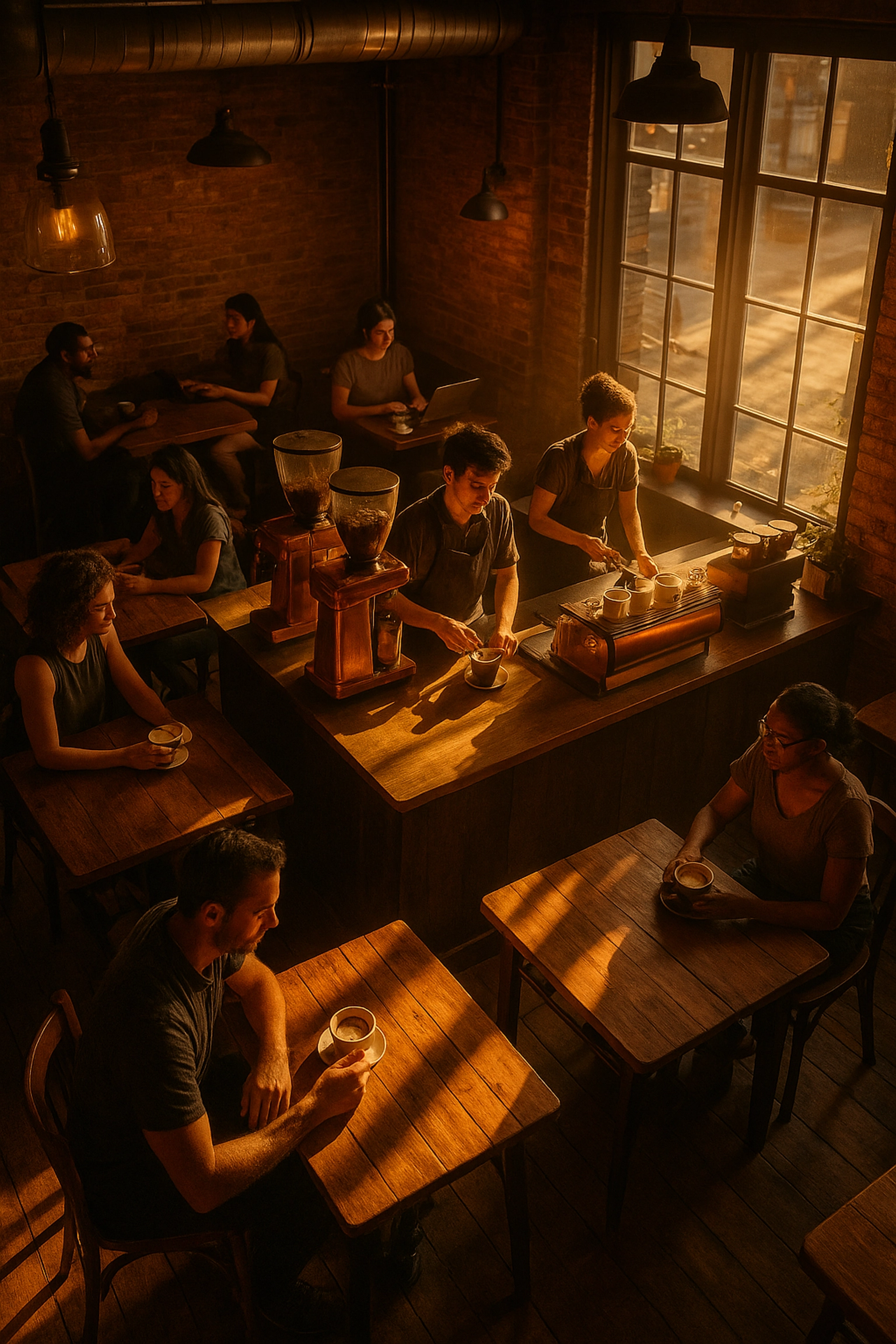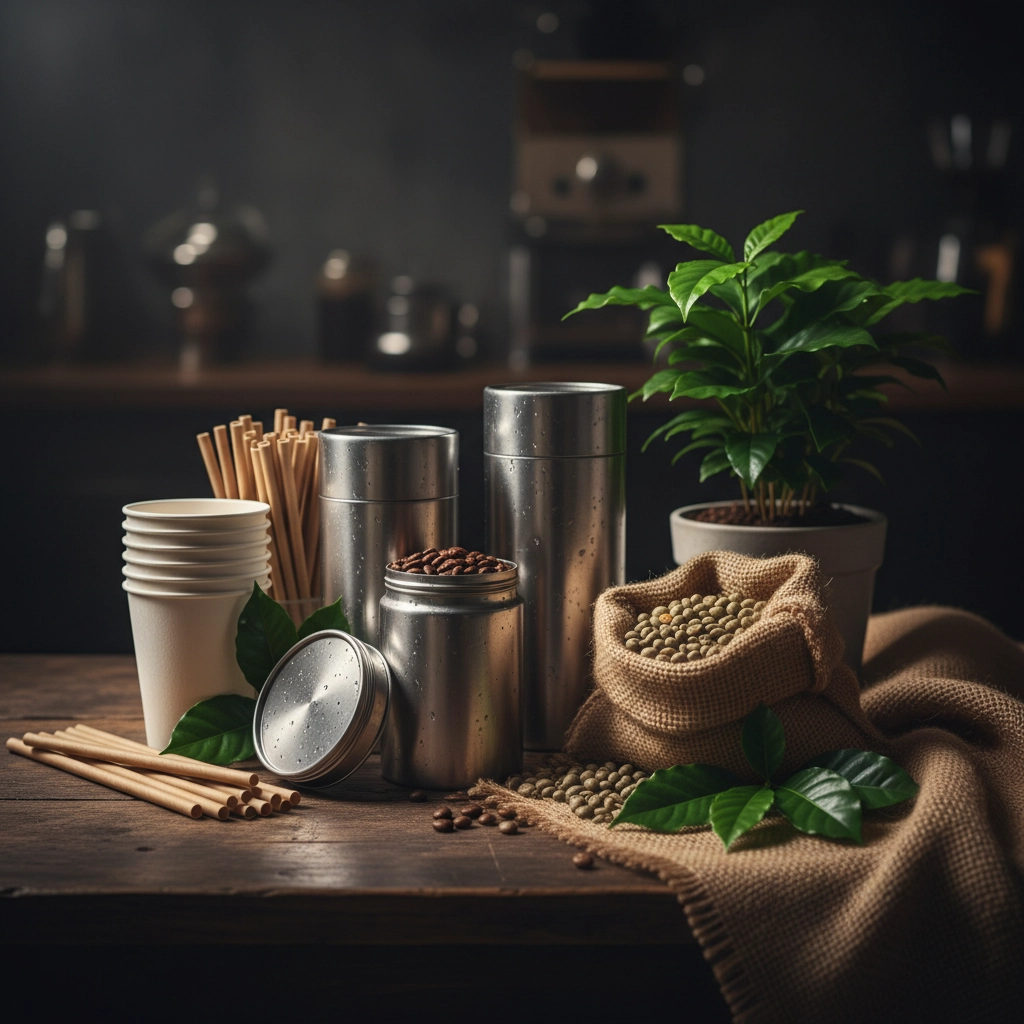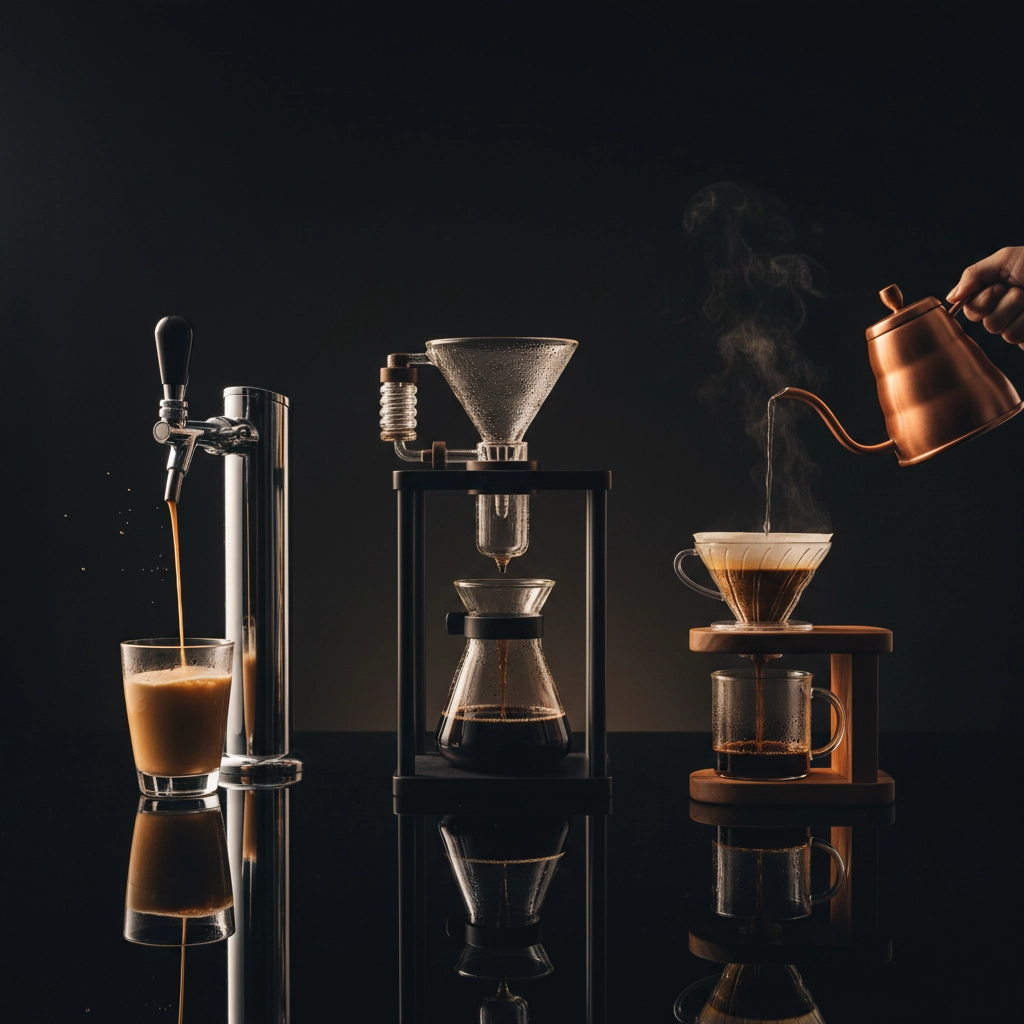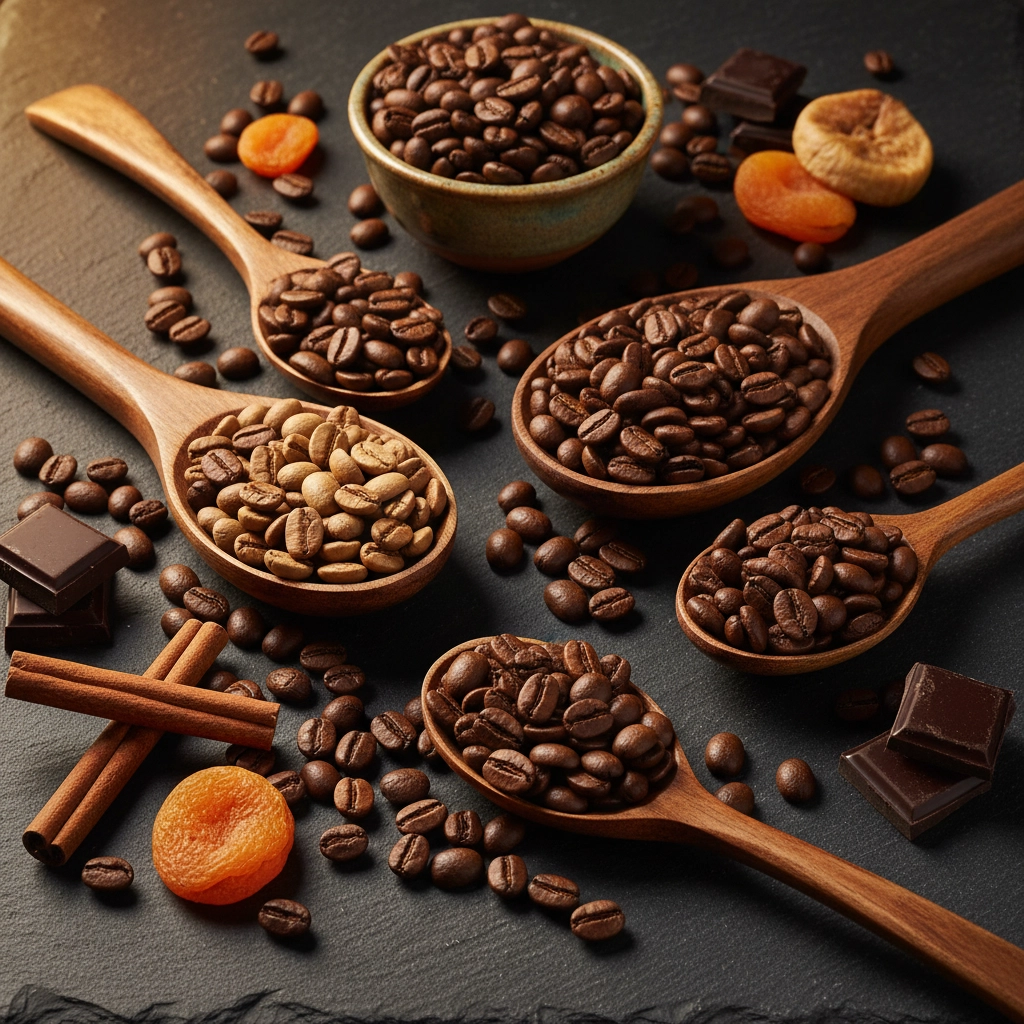Coffee culture has completely transformed over the past decade, and we're living through what many consider a golden age of specialty coffee. Gone are the days when coffee was just a quick caffeine fix – today's coffee lovers are seeking experiences, stories, and flavors that go far beyond the basic cup of joe.
So what exactly is specialty coffee? It's coffee that scores 80 points or higher on the Specialty Coffee Association's 100-point scale, representing the absolute highest tier of quality. But it's more than just a number – specialty coffee is fully traceable from farm to cup, ethically sourced, and crafted with meticulous attention to detail at every step of the journey.
The Numbers Don't Lie: Specialty Coffee is Booming
The statistics around coffee consumption are pretty mind-blowing. In 2024, 67% of Americans are drinking coffee daily – that's a massive 37% increase over the past decade and represents a 20-year high. But here's where it gets really interesting for us coffee enthusiasts: 57% of consumers are ordering specialty coffee at least once a week, showing a substantial 7.5 percentage point jump since 2023.
This isn't just a trend – it's a fundamental shift in how people think about their daily brew. Coffee has evolved from a commodity to an experience, and consumers are willing to pay for quality, sustainability, and craftsmanship.

The specialty coffee segment has matured and scaled significantly over the past five years. While this growth is exciting, it's also created some interesting challenges. The market has become incredibly competitive, making it harder for coffee shops and roasters to stand out from the crowd. This has pushed everyone in the industry to get more creative and innovative – which is fantastic news for coffee lovers!
Sustainability Takes Center Stage
One of the most significant trends we're seeing is the massive shift toward sustainability and ethical sourcing. Today's coffee drinkers don't just want their coffee to taste good – they want to feel good about drinking it too.
Certifications like Fairtrade and Rainforest Alliance have become essential market differentiators. But the sustainability conversation goes way beyond just how the coffee beans are grown. It's extending to the entire supply chain, including packaging innovations that are revolutionizing how we think about takeaway coffee.
Get this: 59% of shoppers are less likely to purchase coffee products with environmentally harmful packaging, and nearly half have actually paid premium prices for eco-friendly alternatives. Coffee shops have responded by adopting sustainable materials like paper straws, biodegradable cups, and offering sweet discounts for customers who bring their own reusable containers.

This isn't just about feeling good – it's become a business necessity. Consumers, especially younger generations, are voting with their wallets for brands that align with their values. Coffee companies that don't prioritize sustainability are finding themselves left behind in this rapidly evolving market.
The Brewing Innovation Revolution
The specialty coffee sector has become like a playground for brewing innovation, and it's absolutely fascinating to watch. Cold brew, flash brew, and nitro coffee have moved from experimental techniques to mainstream options that you can find in coffee shops everywhere.
Each of these methods offers completely distinct flavor profiles and experiences. Cold brew brings out different flavor notes than hot brewing, creating a smoother, less acidic cup. Nitro coffee adds that creamy, beer-like texture that's become Instagram gold. Flash brew combines the best of both hot and cold brewing methods for a unique middle ground.
But the innovation doesn't stop at brewing methods. Coffee shops and roasters are developing exclusive, customizable house flavors and blends that you literally can't get anywhere else. These signature beverages often come with multiple customization options, letting customers create personalized coffee experiences that reflect their individual taste preferences.

We're also seeing the rise of functional beverages – coffee that's been enhanced with additional health benefits and nutrients. Think adaptogens, CBD, protein, and other wellness-focused additions. Even spirit-based specialty coffees are making a comeback, along with premium decaf options that actually taste incredible (finally!).
Flavor Adventures: Beyond Your Basic Cup
Consumer palates have become incredibly sophisticated over the past few years. Coffee drinkers are now actively seeking out unique flavor profiles, including fruity and floral notes that would have seemed completely foreign to coffee culture just a decade ago.
This evolution reflects a broader cultural shift where coffee is valued not just as a caffeine delivery system, but as a complex beverage offering diverse sensory experiences. People are talking about coffee the way they talk about wine – discussing terroir, processing methods, and flavor notes with genuine enthusiasm and knowledge.
Single-origin coffees have become particularly popular because they showcase the unique characteristics of specific regions, farms, and even individual lots. Coffee lovers are developing preferences for Ethiopian beans with their bright, wine-like qualities, or Guatemalan coffees with their chocolate and spice notes.

The education component of specialty coffee has become huge too. Customers want to understand what they're drinking – where it came from, how it was processed, and what makes it special. This has led to coffee shops becoming more like educational centers, with baristas acting as knowledgeable guides through the world of specialty coffee.
The Competition Heats Up
The specialty coffee market is incredibly competitive right now, with major players like Starbucks, local roasters, and everything in between fighting for market share. Companies are adopting multifaceted approaches including innovative product launches, strategic partnerships with coffee growers, and expanded distribution channels both online and offline.
We've seen some major moves in the industry, like Nestlé's acquisition of Blue Bottle Coffee, which shows how big corporations are recognizing the value and growth potential in the specialty coffee space. These strategic buyouts help enhance product portfolios and expand market reach.
Research and development investments have become crucial for developing unique blends and brewing technologies that help brands differentiate themselves. It's not enough anymore to just serve good coffee – you need to serve coffee that tells a story and provides an experience that customers can't get elsewhere.
Looking Forward: Challenges and Opportunities
Despite all this growth and excitement, the specialty coffee industry does face some real challenges. One of the biggest is that the price gap between specialty and conventional coffee continues to narrow. As regular coffee gets more expensive and specialty coffee becomes more accessible, the value proposition becomes trickier to communicate.
There are legitimate concerns about consumer acceptance of premium pricing. While coffee lovers have shown they're willing to pay more for quality and ethical sourcing, there's definitely a limit. The industry is constantly balancing quality with cost efficiency while trying to retain existing customers and attract new ones.
But here's what's exciting: the specialty coffee community is incredibly innovative and forward-thinking. The industry is leveraging technology to improve efficiency, traceability, and transparency while strengthening the connections between producers and consumers.
The future of specialty coffee lies in continuing to innovate without compromising the core values that make it special – quality, sustainability, and craftsmanship. As long as the industry maintains its commitment to these principles while staying creative and responsive to consumer preferences, we're in for some incredible developments in the world of coffee.
The rise of specialty coffee isn't just a trend – it's a fundamental shift in coffee culture that shows no signs of slowing down. For coffee lovers, that means more options, better quality, and more interesting experiences than ever before. And honestly, what's not to love about that?




